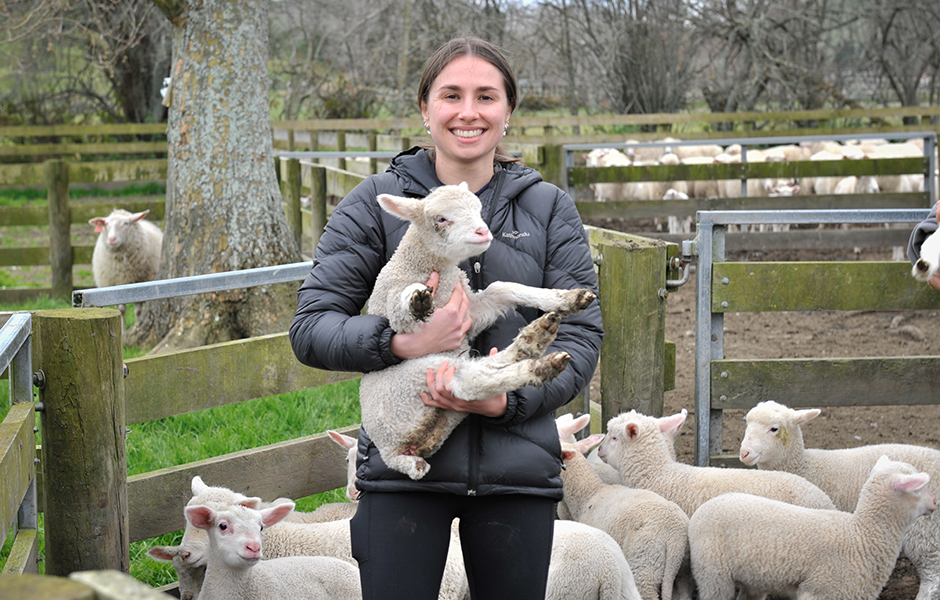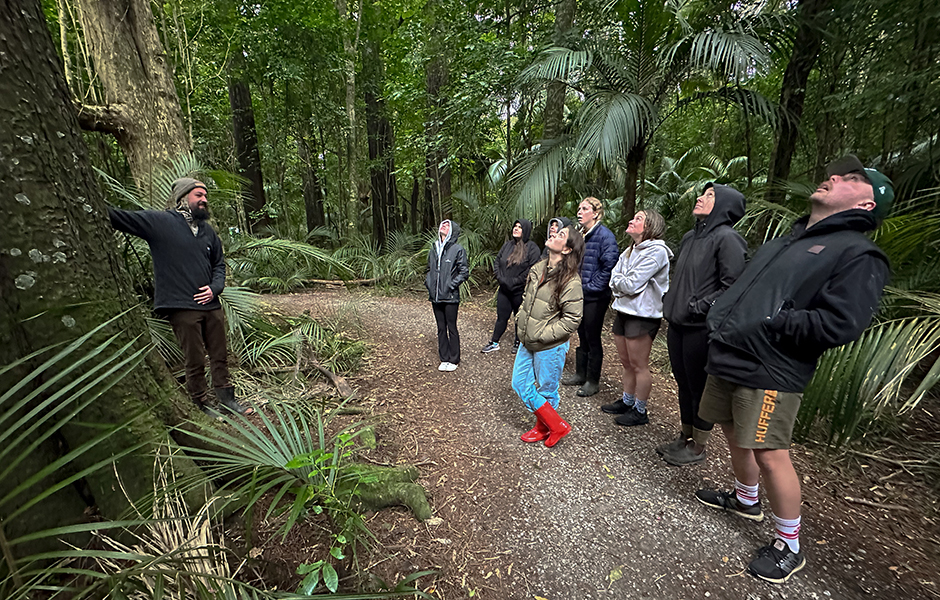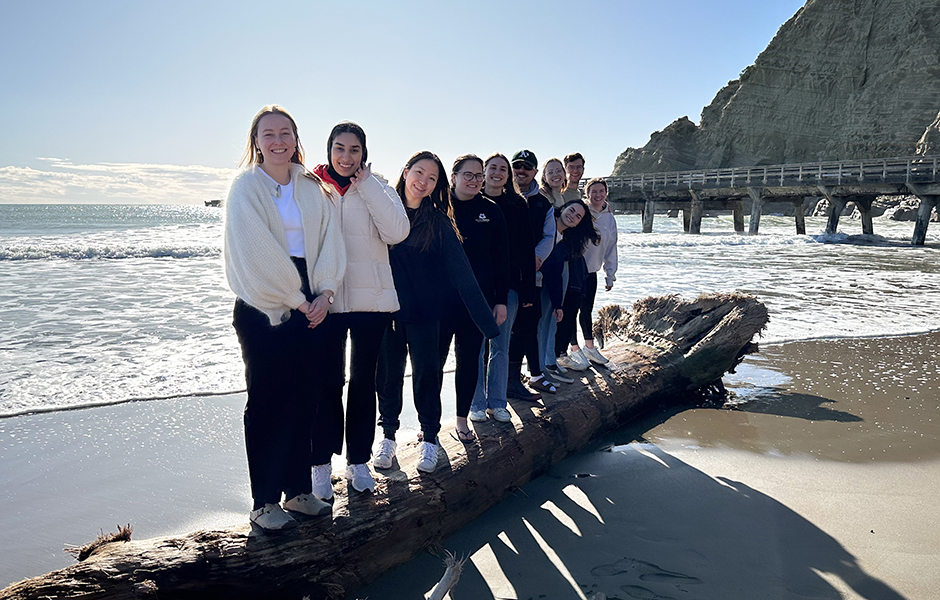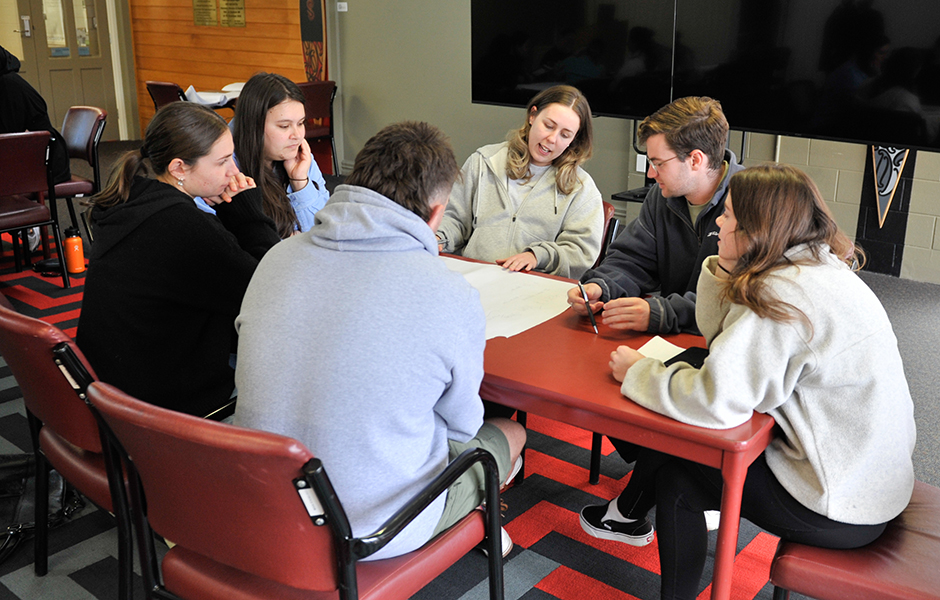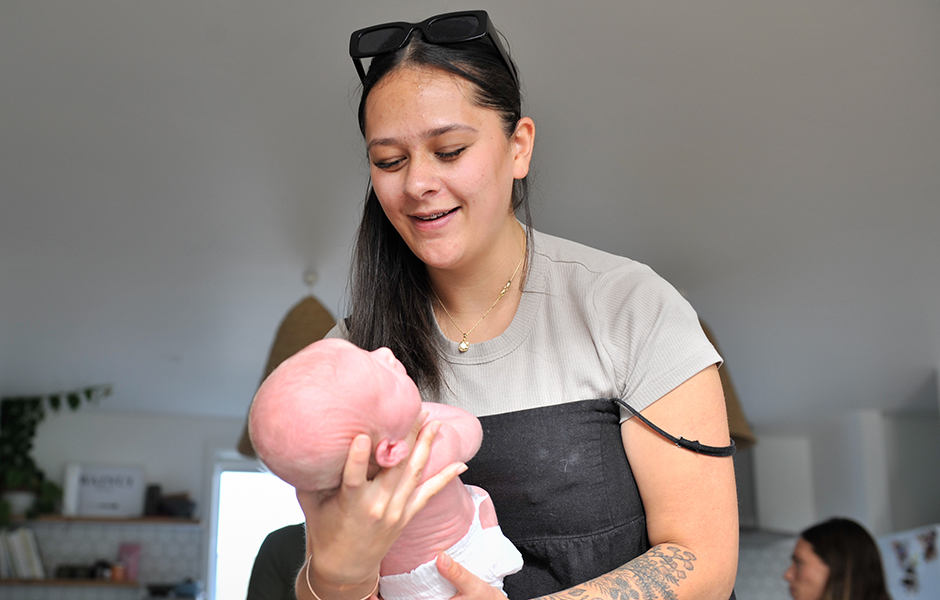Overview
Interprofessional education (IPE) learning activities offered at the University of Otago afford opportunities for students at three learning levels throughout their degree: exposure, engagement, and immersion, ensuring students are collaboration-ready upon graduation.
The Tairāwhiti IPE programme began in 2012 and brings senior pre-registration students from different health disciplines together to learn with, from and about each other while gaining clinical experience in rural Aotearoa New Zealand. A similar programme has run in Te Tai o Poutini since 2021.
Tairāwhiti is the remote eastern-most region of the North Island Te Ika-a-Māui. Since 2021, a companion Te Tai Poutini IPE programme has run on the West Coast of the South Island Te Wai Pounamu.
The Tairāwhiti IPE programme is run by the University of Otago in conjunction with a range of tertiary institutions, Te Whatu Ora Tairāwhiti and Te Whatu Ora Te Matau a Māui, Hawke’s Bay.
Final year students live together in shared accommodation in five-week rotations at Gisborne hospitals. The programme typically starts with a noho marae. Each week, students have three days of placements in their home discipline. They also spend a morning or afternoon shadowing a student of a different discipline, and finish the week with a day of interprofessional learning.
Students are from 12 health professional degree programmes, from a number of tertiary education institutions:
- University of Otago: Dental, medical, oral health, physiotherapy, pharmacy
- Auckland University of Technology: Paramedicine, podiatry
- Massey University: Speech language therapy
- Ara Institute of Canterbury: Midwifery
- EIT : Nursing
- NMIT : Nursing
- Otago Polytechnic: Occupational therapy
- WINTEC : Midwifery
- University of Auckland: Dietetics
- Victoria University of Wellington: Midwifery
Block dates for 2025
- Block 1: 2 March to 4 April 2025
- Block 2: 27 April to 30 May 2025
- Block 3: 29 June to 1 August 2025
- Block 4: 17 August to 19 September 2025
- Block 5: 5 October to 7 November 2025
Objectives
IPE has been shown to lead to improved interprofessional collaborative practice by graduates. In turn this leads to best use of the different skill-sets to care for patients and whānau, reduces safety incidents and results in greater patient satisfaction with care.
Key learning objectives of Tairāwhiti IPE incorporate principles of: Interprofessional health care, Hauora Māori, long term condition management and rural health care. Students also meet discipline specific clinical learning objectives.
Interprofessional health care
Achieving greater understanding between health disciplines about patient-centred collaborative practice, effective teamwork, interprofessional respect and how to effectively resolve disagreement.
Hauora Māori
To better meet Māori Health needs by working with Māori in culturally safe and respectful ways, enhancing understanding within Māori models of health care.
Long term condition management
Demonstrating principles of team-based care, self-management and expert patients: as more people than ever before live longer and live with more long-term conditions, collaborative practice is increasingly needed.
Rural (Tai-whenua)
Increasing rural training opportunities, enhancing workforce opportunities with students able to return to rural areas, better equipping senior health students for comprehensive generalist practice.
“I went from not considering rural practice to actually considering it as a viable option. Everyone is very friendly here and the community is very cohesive and pulls together to overcome adversities.”
Core intended learning outcomes
At the end of the programme, and within a clinical, rural and Hauora Māori context, students will be able to demonstrate that they have developed advanced skills in, and understanding of:
- Interprofessional communication
- Te Tiriti o Waitangi, Hauora Māori and Rural health care as they influence health and social care in Tairāwhiti and Wairoa
- Whanau centred approaches to care
- Roles and responsibilities
- Teamwork and negotiating conflict
- Collaborative leadership
- Practice reflection, in relation to complex conditions and socially accountable practices
- Co-ordination and shared decision making in patient/client care
Accommodation and transport
The Tairāwhiti IPE students live in shared accommodation. This enables students to learn with, from and about each other as they work on community projects while socialising and exploring the area together.
The Tairāwhiti programme provides and pays for one return trip for each student from their main clinical location (airfare or reimbursed mileage of a private vehicle). Necessary transport costs for programme activities are also covered.
Students will be provided with accommodation for five weeks on the Te Whatu Ora Tairāwhiti hospital site in Gisborne, or at the Francis Kimbell Hostel at Wairoa Hospital.
For students staying longer than five weeks, accommodation can be arranged (additional cost).
More information
Contact
Udara Wickramasinghe
Programme Manager/Operations Lead
Email udara.wickramasinghe@otago.ac.nz
Mob +64 21 279 1146
